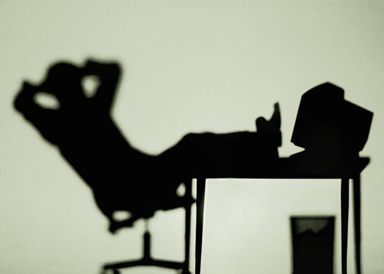In Praise of Laziness
 The August 17th issue of The Economist has an article titled “In Praise of Laziness, businesspeople would be better off if they did less and thought more.”
The August 17th issue of The Economist has an article titled “In Praise of Laziness, businesspeople would be better off if they did less and thought more.”
The article starts by sharing some of the top recent business books which tell us to Lean In, Book Yourself Solid, and Never Eat Alone. I agree with the article… we need less doing and more thinking. In thinking about my own time management, here are 10 things I do to increase productivity and not waste effort:
-
Say no. Whether it’s someone who wants to “talk about partnering” or an invitation for an event I’d rather not attend, I pass.
- Focus on results (not activities or perceptions). In the first decade of the firm, I cared about being early into and late out of the office. At a board meeting a decade ago, when going through details of what I did the last month, a board member stopped me and said, “I don’t care. You’re paid for results. Let’s focus on that.” Fast forward to now, I’m not concerned about perceptions–my mornings are filled with coffee, reading, writing, thinking, and planning before a morning run then heading into work.
- Delegate. Around the same time as the above mentioned board meeting, I attended Dale Carnegie’s Leadership Training for Managers. It broke leadership down into seven major things… one of which was delegation. Today, when new stuff pops up that could fall in my lap, I look to delegate or… question whether it needs to be done at all.
- Trust. As a leader, it’s imperative to trust my leaders and everyone in the firm. Per #2 above, I focus on results and don’t care about when or where work gets done.
- Communicate. To be clear on expectations, I meet on Mondays with my leaders for 1-on-1’s. To stay on the same page as a team, we finish our days with an end of day management huddle.
- Think. In my book, Building a Winning Business, I share there aren’t college courses on thinking. Yet, it’s done constantly. Before jumping into any activity, I take time to identify the best way to tackle.
- Plan. There’s wisdom to the adage, “Failure to plan is planning to fail.” Simple things like setting advanced reminders for important things that can be booked or done ahead of time, save time, stop fire drills, and reduce stress.
- Focus on the future. In The Economist article, it shares how Jack Welch of GE would spend an hour a day “looking out the window of time” and Bill Gates would set aside two “think weeks” per year. If these crazily successful people can commit time to think about the future, “Why can’t I?”
- Goal set. In Alice in Wonderland, she’s told “If you don’t know where you are going, any road will get you there.” For the different areas of my life–health, family, friends, finances, career, spirituality, philanthropy, etc.–I’ve made a clear list of objective, measureable goals. I use these to guide decisions about how to spend my time.
- Manage time vs. being managed by it. An early mentor, told me about the tyranny of the urgent. He said if I wasn’t proactive and preventative, my days would be managed by urgent, most likely non-important things, vs. important non-urgent things. This is spot on with the advice of Ivy Lee to Bethlehem Steel.
The Economist article finishes by saying, “… Doing nothing may be going too far… But there is certainly a case for doing a lot less—for rationing e-mail, cutting back on meetings and getting rid of a few overzealous bosses.” The of the article in The Economist and title of this post were meant to be eye-catching. When it comes to work, I think about a quote from one of my favorite, “old school” business thought leaders, Earl Nightingale. He said “We are at our very best, and we are happiest, when we are fully engaged in work we enjoy on the journey toward the goal we’ve established for ourselves. It gives meaning to our time off and comfort to our sleep. It makes everything else in life so wonderful, so worthwhile.”